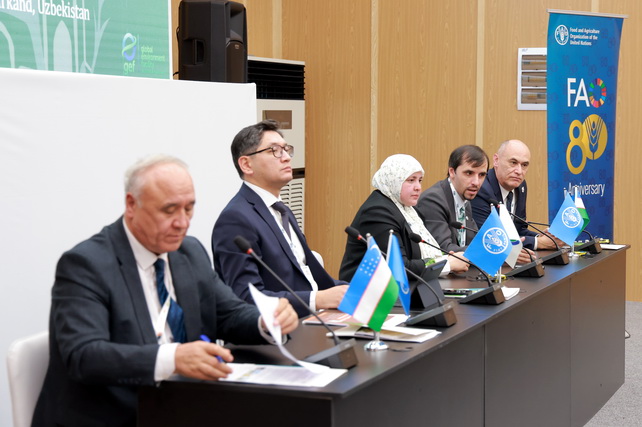
Uzbekistan Showcases Nature-Based Solutions to Reduce Human–Wildlife Conflict at CITES COP20
Uzbekistan Showcases Nature-Based Solutions to Reduce Human–Wildlife Conflict at CITES COP20
Tashkent, Uzbekistan (UzDaily.com) — Uzbekistan is presenting large-scale nature-based solutions to reduce human–wildlife conflict at the 20th Conference of the Parties (COP20) to the Convention on International Trade in Endangered Species (CITES), which is taking place in Samarkand from 24 November to 5 December.
The conference brings together governments, international organizations and conservation experts to strengthen global efforts to protect wildlife and promote sustainable ecosystem management.
The UN Food and Agriculture Organization (FAO) is hosting a series of side events at the meeting, highlighting Uzbekistan’s work on ecosystem restoration and biodiversity protection.
On 24 November, Uzbekistan — the host country for COP20 — held a high-level side event together with FAO, the International Union for Conservation of Nature (IUCN), ICARDA and the national forestry, biodiversity and ecotourism authorities, with support from the national environment and climate committee.
The event, titled “Addressing Human–Wildlife Conflict and Trade Risks of Endangered Species Through Ecosystem Restoration and Nature-Based Solutions: Lessons from the FOLUR Project in Uzbekistan,” focused on the country’s pilot initiatives under the FOLUR program.
According to organizers, Uzbekistan is implementing nature-based solutions such as habitat restoration, water-harvesting technologies, pasture rehabilitation and measures to mitigate human–wildlife conflict. These approaches aim to ease pressure on CITES-listed species, including the snow leopard, Bukhara deer, saiga antelope and valuable endemic medicinal plants. Officials emphasized that such measures are particularly important in a region facing water scarcity, land degradation and a harsh continental climate.
Side event speakers noted that agricultural landscapes cover roughly 40% of the world’s land area, making them critical for maintaining habitat connectivity and ecosystem services.
Case studies from Karakalpakstan, Kashkadarya and Khorezm were presented, including water-capture systems, landscape restoration efforts and conflict-mitigation methods developed through FOLUR with IUCN and ICARDA.
“Uzbekistan is demonstrating that nature-based solutions are practical and scalable tools to protect vulnerable species and strengthen landscape resilience. Through strong partnerships with national institutions and international organizations, we are translating science-based restoration into long-term ecological and economic gains,” said Sherzod Umarov, FAO’s Deputy Representative in Uzbekistan.
The event underscored Uzbekistan’s growing environmental leadership, supported ongoing reforms and laid the groundwork for future cooperation on sustainable land management and biodiversity conservation. Organizers also presented FOLUR Component 3 materials, IUCN ROAM assessments, technical guidelines and NbS packages for priority regions.